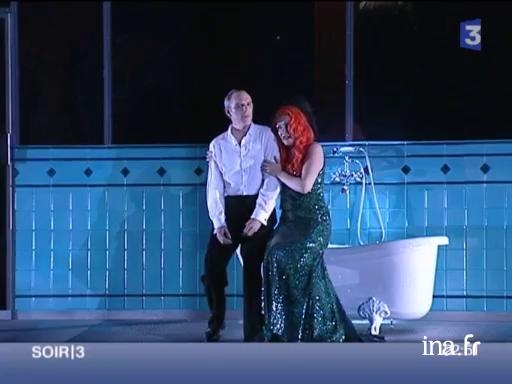The Makropulos Affair in Paris

Information
Report on The Makropulos Affair, which makes its debut in the Opéra de Paris's repertoire. Created in 1926 by Chech composer Léos Janacek, The Makropulos Affair talks about the myth of eternal youth. Polish director Krzysztof Warlikowski transposed the action to Hollywood's Marilyn Monroe years.
- Europe > Czech Republic
- Europe > France > Ile-de-France > Paris
- Europe > Poland
Context
Born in Hukvaldy in 1854, in Moravia in a modest area, Leos Janacek studied music in Brno, then Prague, Saint Petersburg, Leipzig and in Vienna. He was a teacher and then Professor of music in Brno and he began composing modestly. He became friends with Dvorak, after which he became interested in the natural melody of spoken language. Like Bartok would later do in Hungary, he collected and edited popular melodies and his whole career would be marked by this attention to the inflections of the spoken voice. At the turn of the century his music had a social aspect: struggle against the monarchy and satire of the petite bourgeoisie. But his audience was still limited and it was after the operaJenufa, performed in Brno in 1904 and then in Prague in 1916 that Janacek became famous, at over 60 years old. Masterpieces followed: his piano works, his chamber music, theDiary of one who Disappeared, for song and piano, theGlagolitic Mass, Taras Bulba, theSinfonietta and the operasKatia Kabanova,The Cunning Little Vixen, the Makropulos Case, From the House of the Deadcounted among the indisputable masterpieces of the twentieth century.
Heavy, inventive, powerful, the music of Leo Janacek often has short characteristic motives, taken then altered and integrated into a sort of long recitative whose rhythmic originality is always linked to the spoken word.
























